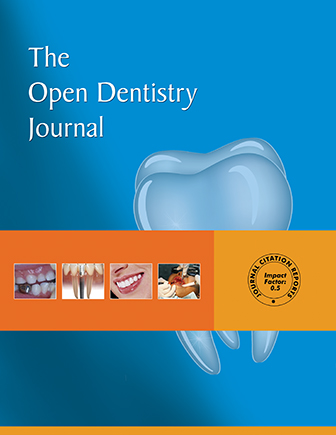All published articles of this journal are available on ScienceDirect.
Evaluation of Fracture Resistance and Sites of Failure of Different Dowel Core Restorations: An In-Vitro Study
Abstract
Background:
Dowel Cores are often required in endodontically treated tooth to aid retention and resistance for a final prosthetic crown. Studies concerning the role of post-core systems on the fracture resistance with different dowel material remain controversial.
Aim:
This experimental study aimed to investigate the fracture resistance strength and failure mode of 3 dowel systems (glass fiber, indirect resin, and prefabricated metal with resin core).
Methods:
Twenty-one extracted human maxillary central incisors were first endodontically treated and then separated into 3 equal groups randomly;1st group consisted of glass fiber dowel, 2nd group consisted of indirect resin dowel, and 3rd group consisted of the prefabricated metal dowel. All specimens were restored with resin core and indirect resin crown. A testing force was applied with a universal testing machine (at 135 o angle) at 3 mm from the incisal edge of crown and forces were measured. Statistical tests were done using One-way ANOVA and Chi-square Test.
Results:
There was no significant difference (P-value >0.05) of the fracture resistance among glass fiber dowel, indirect resin dowel and pre-fabricated dowel with indirect resin crown. The prefabricated metal dowel had maximum fracture resistance (566 ±157.771 N) followed by Glass fiber dowel (541.047 ±199.571 N) and indirect resin dowel and post (444.550 ±139.788 N).
Conclusion:
Glass fiber dowel, indirect resin dowel and prefabricated metal dowel with resin core and indirect resin crown systems showed statistically insignificant fracture strength values and mode of failure.


